Commercial Charging Solutions
Fueling the Future: Commercial Charging Solutions Tailored for Your Business
Stay ahead in business with advanced commercial charging solutions.
Faced with the business opportunity of EV charging demand, EV charging post operators need a smart and efficient charging solution to increase profitability
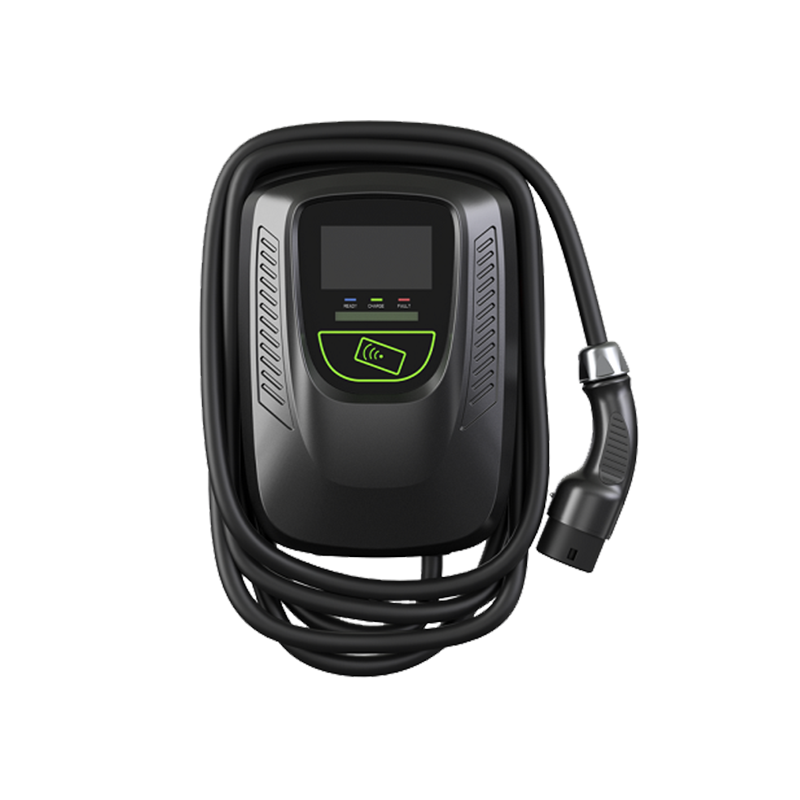
EVC10 charger is CE, CB, UKCA, and TR25 certified, supports 7kw,11kw,22kw power, it is a professional commercial electric vehicle.EVC10 meets the RFID ISO14443 user authentication standard, and has a three-year warranty.
√ Has a 4.3-inch LCD display, and supports LAN and WiFi/4G connectivity.
√ OCPP 1.6J full function, OCPP 2.0.1 updatable.
√ Cyber security solution to protect the EVSE from hacking.
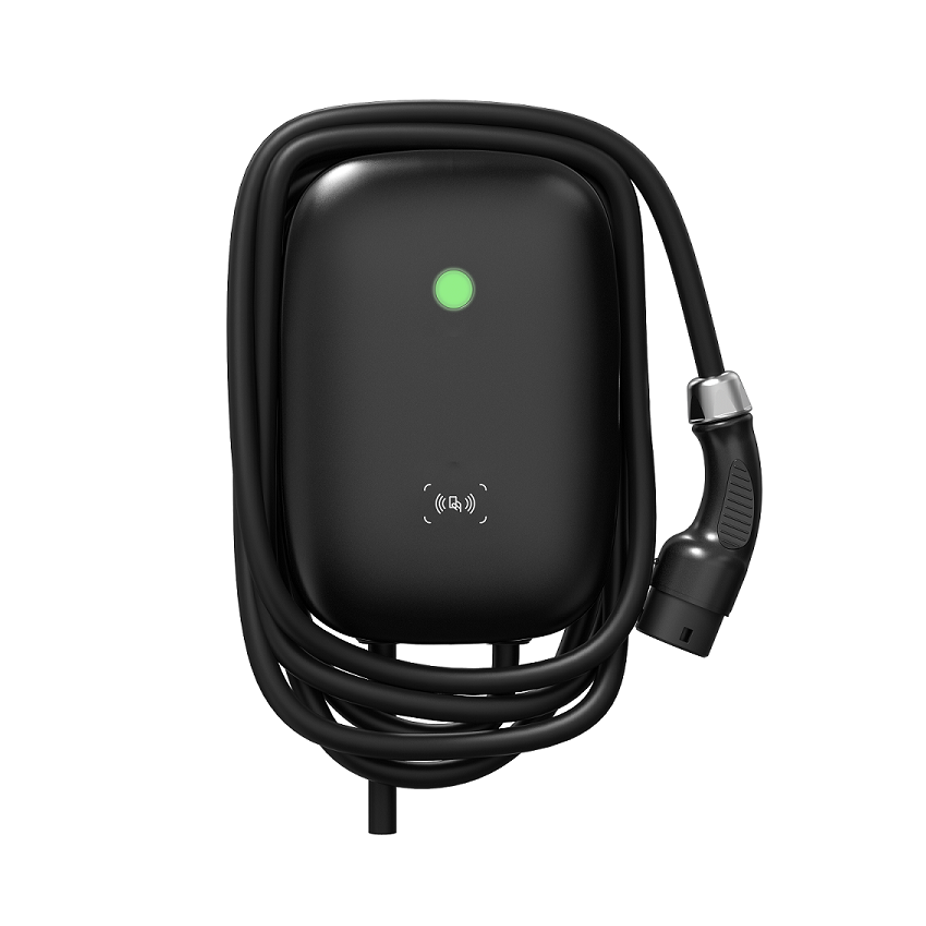
The EVC11 is a durable EV charger with two versions, socket version and RFID version. The EVC11 has a power rating of up to 22 kW, is certified by CE, CB, UKCA, TR25 and has a two-year warranty.
√ OCPP 1.6J full function, OCPP 2.0.1 updatable.
√ ISO15118 (Plug & Charge) for better charging experience.
√ Cyber security solution to protect the EVSE from hacking.
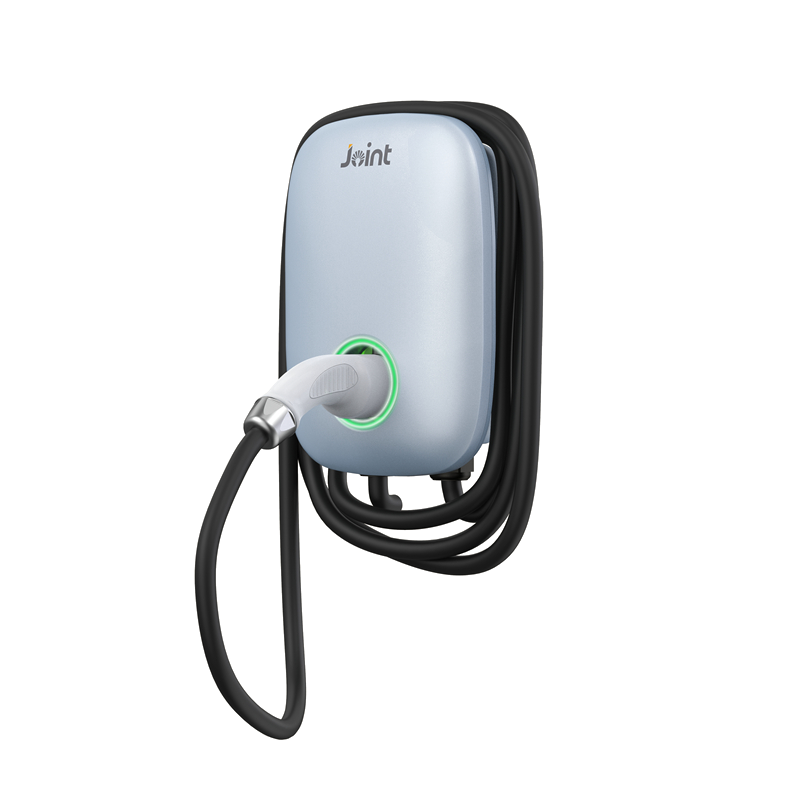
If you want a fast and efficient EV charger in one frame, choose the Joint EVC12. As a level2 commercial EV charger, the white/black EVC12 has a dynamic load function, power support from 3.8~19.2kw, and supports LAN/Wi-Fi/4G networking.
√ OCPP 1.6J full function, OCPP 2.0.1 updatable.
√ ISO15118 (Plug & Charge) for better charging experience.
√ Dynamically balance energy to reducing electricity costs.
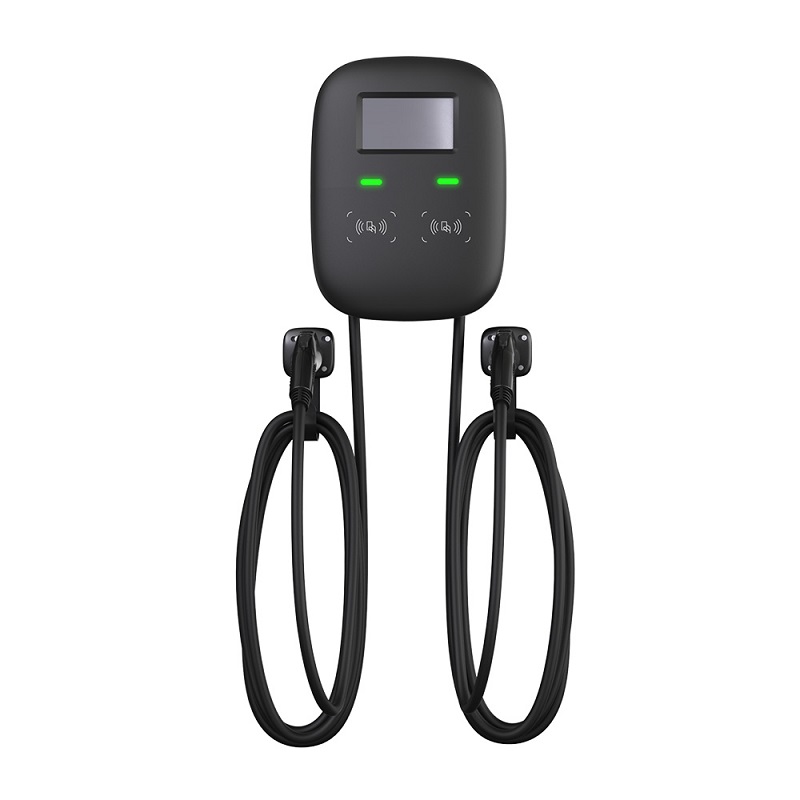
As a level 2 dual-port EV charger, the EVCD 1 has a maximum output current of up to 48 amps. the EVCD 1 is ETL and FCC certified and comes with a three-year warranty. In addition to this, the EVCD 1 features a display, indicator lights and RFID areas for commercial charging.
√ Tailored for commercial deployment.
√ Wall-mounted and integration design for easy installation.
√ Reduce the investment of power capacity to enjoy fast ROI.
Why do we need commercial EV charging stations
As the number of electric vehicles increases, more and more people are choosing electric vehicles as their mode of transport, driving them to work, shopping malls, traveling, and looking to charge their EVs at their destination. Commercial electric vehicle (EV) charging stations play a vital role in supporting the growing demand for EVs and improving the EV charging infrastructure. Now, many operators are providing charging services at people's destinations by establishing commercial EV charging points..
Attract customers and employees:
Businesses that offer commercial charging stations can attract environmentally conscious customers and employees who drive electric vehicles. When EV drivers arrive at their destination, a destination charging point that offers convenient charging options can increase the overall appeal of the business and help build goodwill.
Increased Revenue:
Restaurants, hotels, truck stops, and other operators with commercial EV charging stations can earn a service fee by providing charging services for EVs. Using EV charging poles with advertising screens (e.g., JointEVCP4), one can earn advertising fees. In addition to this, the probability of customers spending money in the vicinity of the charging point increases during the charging of electric vehicles, thus generating potential revenue.
Promote environmental protection:
Building commercial EV charging stations helps to improve EV charging infrastructure and promote environmental protection. Electric vehicles emit zero emissions while travelling, effectively reducing carbon emissions. Commercial EV charging points, as the key to EV charging infrastructure, can help people achieve low-carbon travel and slow down the greenhouse effect.
Get government incentives:
In some regions, governments offer incentives and subsidies to companies that install commercial EV charging stations. Utilizing these incentives can make it more cost-effective for companies to implement charging infrastructure.
01. Attract customers and employees
Attracting environmentally conscious customers and employees who drive electric vehicles
02. Increased Revenue
Commercial EV chargers can earn service charges, advertising fees and other potential revenues.
03. Promote environmental protection
EVs emit zero emissions whilst on the road, effectively reducing carbon emissions
04. Get government incentives
Some governments offer incentives and subsidies to encourage more businesses to install EV charging stations
Advantages of Joint Commercial Electric Vehicle Chargers
01.Compatibility
Joint commercial chargers support different charging powers, allowing for faster charging times.Joint EV chargers are designed to be compatible with a wide range of EV models. This inclusivity ensures that operators offer EV charging for multiple types of EVs without the need for multiple charging solutions.
02.Accurate counting
Joint provides commercial EV charger operators with professionally certified EV chargers to ensure accurate billing. For example, the Joint EVC10, which is certified by the California Type Evaluation Program (CTEP), issued by the California Department of Food and Agriculture (CDFA), provides accurate and transparent fee calculations for both users and operators.
03.Support for customisation
As an original design manufacturer (ODM), Joint offers customizable branding options that allow businesses to display their logos, colours, and messaging on their charging stations. To meet your organisation's business operating model Joint will also cater to your application needs in terms of product features and parameters.
04.User Friendly Interface
Join's commercial EV charging stations feature LED screens and user-friendly interfaces that make it easy for EV users to start and complete charging sessions. Intuitive displays and simple instructions enhance the overall charging experience and help increase customer satisfaction.
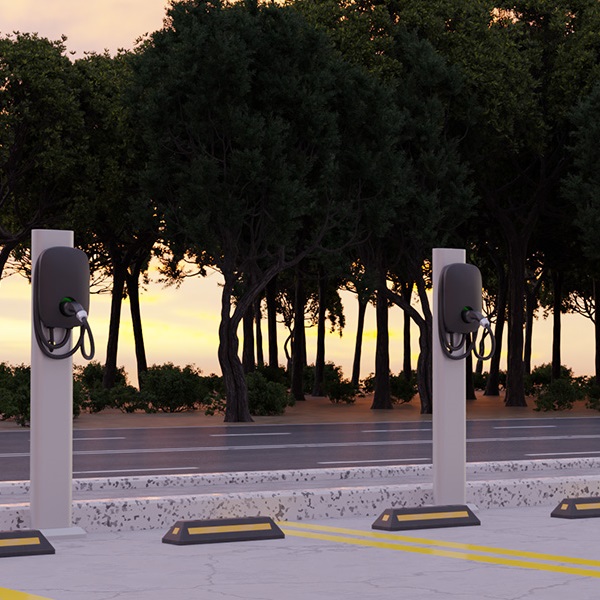
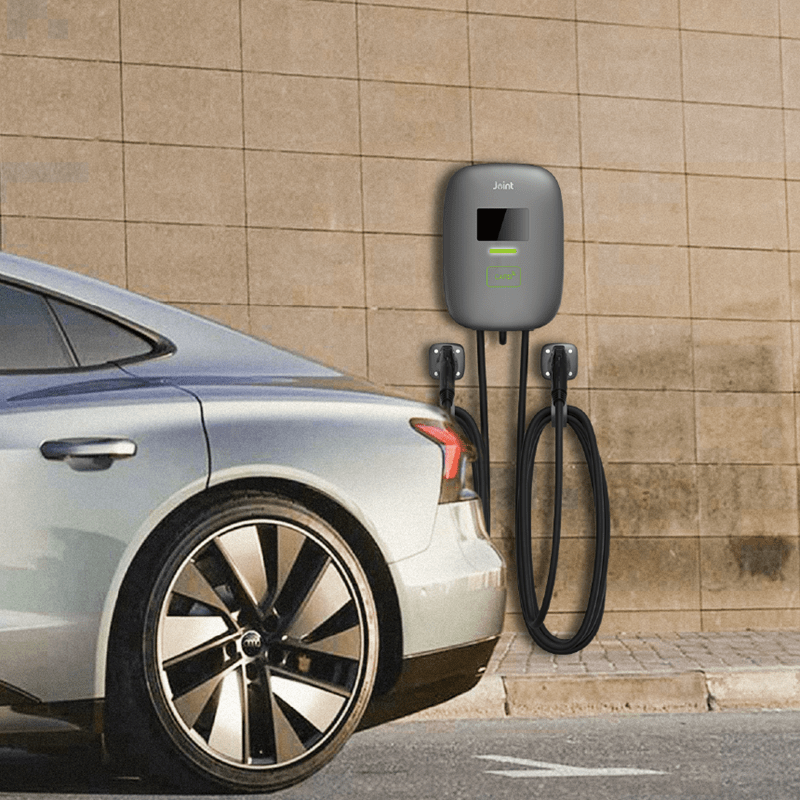
Joint Commercial EV charging solutions help you run a successful business
Joint Commercial EV Charging Solutions helps you build a successful EV charging business.
As a EV charger wholesaler, Joint produces a series of products such as EV charging stations, home energy storage, smart street light poles, and matching LED outdoor lamps, which are globally certified with ETL, ENERGY STAR, FCC, CE, CB, UKCA, TR25, and IS014001 certificates.
As a reliable partner, Joint provides advanced and reliable commercial EV charging solutions. Our commercial EV charging solutions support various locations such as, shopping malls, retail shops, hotels and motels to name a few. Increase profitability, sustainability, and customer satisfaction with our commercial EV charging solutions. From innovative technical support to comprehensive partnerships, Joint will help you achieve higher levels of EV charging service and business growth.
√ Provide ODM and OEM services. We will customise products that match your corporate image and utility according to the needs of your business operation model and application environment.
√ Provide professional installation guidance.
√ Reassuring product quality. Our products are qualified and tested, and we offer warranty, and quality 24-hour service, so you can use them with confidence.
Frequently Asked Questions
Commercial EV chargers are EV chargers for commercial use, they are operated by businesses such as EV charger operators, EV charging operators, real estate properties or community properties for the purpose of providing charging services to EV owners for a fee.
1. EV charger type and charging speed:
Home EVs are generally level 1, level 2 EV chargers with slower charging speeds. People install their home electric car chargers in their garage or backyard to make them more convenient to use.
Commercial chargers include Level 2 and Level 3 (DC fast chargers). Level 3 chargers have a higher power and support DC fast charging (DCFC), which is usually more than 50 kW and even up to 350 kW. This high power makes the commercial chargers suitable for providing more charging capacity in a shorter period of time, which is suitable for scenarios where fast charging is required, such as motorway charging stations.
2. Applicable scenarios:
Home EV chargers: Home chargers are mainly used in residential environments, such as home garages or parking spaces.
Commercial EV chargers: Commercial chargers are installed in public places, such as shopping malls, office buildings, hotels, motorway service areas, etc., to provide fast charging services for people who travel long distances with their EVs.
3. Payment systems and user authentication:
Home EV chargers: Home chargers usually do not require complex payment systems or user authentication, and to make it easier for owners, many home EVs are ISO 15118 compliant and support plug & charge.
Commercial EV chargers: Commercial chargers are equipped with payment systems such as radio-frequency identification (RFID), mobile payments, etc. so that they can be used by non-owners. In addition, commercial EV chargers usually have a display screen so that the user can check the charging status of the EV.
The installation of a commercial EV charger involves a comprehensive and systematic process that includes site assessment, equipment selection, electrical installation and ongoing maintenance, and generally requires the following steps (each region has different requirements for installing a commercial EV charger, and the specific steps will depend on the local conditions).
1. site selection and assessment:
First, assess the capacity of the site's power supply for compatibility with the selected EV charger to ensure it can adequately support the charging station.
In addition, consider the accessibility of the chosen location.
2. Obtain necessary permits:
Understanding the regulatory environment is a critical step in the installation process. This involves checking and understanding the local building codes, zoning regulations, and any specific requirements associated with the installation of an EV charger.
3. Choose the right charger:
Choosing the right commercial EV charger is a critical decision that depends on a variety of factors. Consider the power level required (either Level 2 or Level 3) and evaluate the number of charging ports required based on the expected usage and traffic at the location. Other features should also be considered, such as dynamic load balancing capabilities to easily manage multiple electric chargers.
Different locations may have different charging needs, such as motorway EV charging posts and urban business districts, where EV charging points next to motorways require DC fast chargers that support fast charging features more than shopping mall car parks. Therefore, the need to choose the right charging station can ensure that the charging station meets the needs of users.
4. coordination with utility companies:
Coordination with local utility companies is critical to ensure that existing electrical infrastructure can support the installation of commercial EV chargers. Contact the utility company to discuss the electrical requirements of the charging station and determine if any upgrades or modifications to electrical service are needed.
5. Electrical Installation:
The electrical installation phase involves hiring a licensed electrician with expertise in EV charger installation. The electrician will be responsible for installing the necessary electrical infrastructure, including wiring, panels, and metering equipment. The installation must comply with local electrical codes and safety standards to ensure the reliability and safety of the charging station.
6.Final Inspection:
Final inspection is a necessary step to ensure compliance with building codes, safety standards and regulatory requirements.
Coordinating the final inspection with local authorities provides an opportunity to address any potential issues before the charging station becomes operational.
7. Start-up and maintenance:
After obtaining approval from the local authority, a commercial EV charging station can be officially launched. At the same time, a commercial EV charging station requires a maintenance programme to ensure it can operate safely over the long term.
1. RFID cards:
Commercial electric vehicle (EV) chargers typically use radio frequency identification (RFID) cards as a secure and convenient means of payment. Users can obtain an RFID card from their charging network provider and link it to their account. Users simply swipe their RFID card over the swipe zone of a commercial EV charger for a simple and efficient payment process.
2. Mobile apps:
EV charging network operators offer dedicated mobile applications for managing EV charging transactions. These apps offer a range of functions including locating charging stations, checking station availability, and initiating charging sessions. Users can link their preferred payment method (e.g. credit card or mobile's wallet) to the app, simplifying the payment process.
3. Payment services for mobile:
Some charging stations support contactless payments, such as the popularity of mobile payment services such as Apple Pay and Google Pay. Users with smartphones equipped with these services can pay by simply tapping their mobile phones on the charging station's card reader. This contactless payment method increases user convenience and is in line with the trend towards digital and mobile payment solutions.
4. Account-based billing:
Account-based billing involves the user creating an account with the toll network provider and linking it to a preferred payment method. This method is common for RFID card or key card based systems and mobile applications. The user initiates a charging session using their authenticated credentials and the associated charges are automatically credited to their registered account. Account-based billing provides a simplified and centralised approach to managing chargeback costs.
Learn more about commercial charging
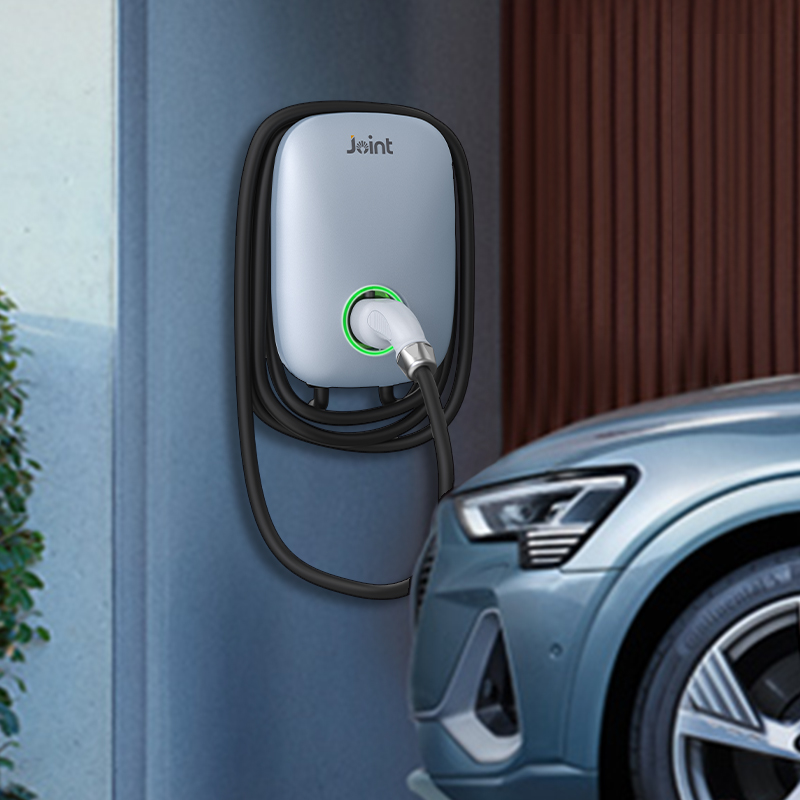
How to start a successful EV charger business?
One might ask, How do electric vehicle charging stations make money? This blog will explore the EV charger business, from the main types of EV charger businesses to how to start an EV charging business.
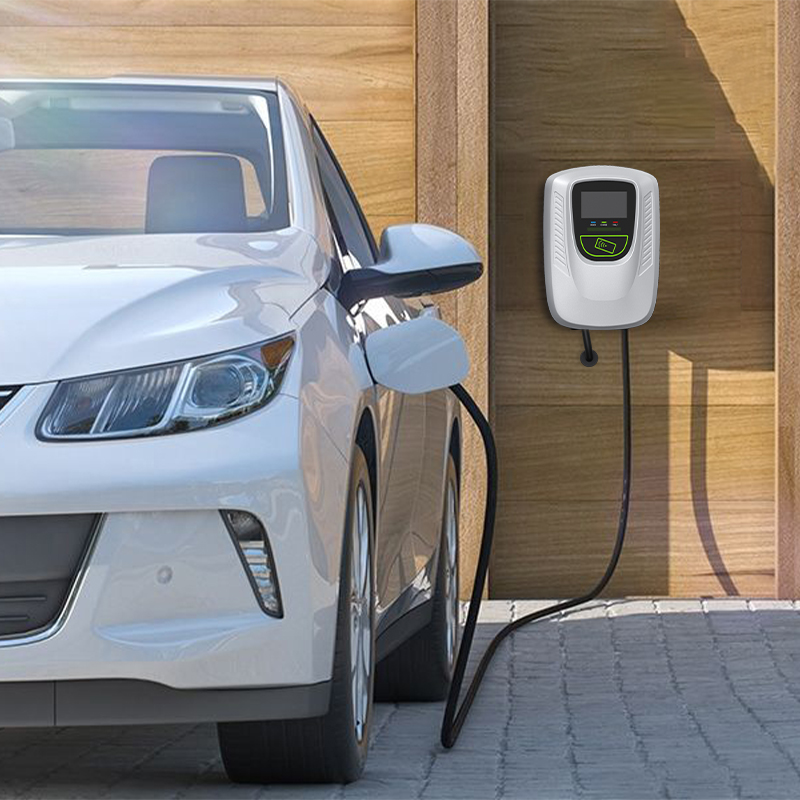
Commercial vs Home EV Charging Stations
This blog will talk about the benefits of installing electric vehicle charging stations around the basic knowledge of commercial electric vehicle charging stations and home EV charging points.
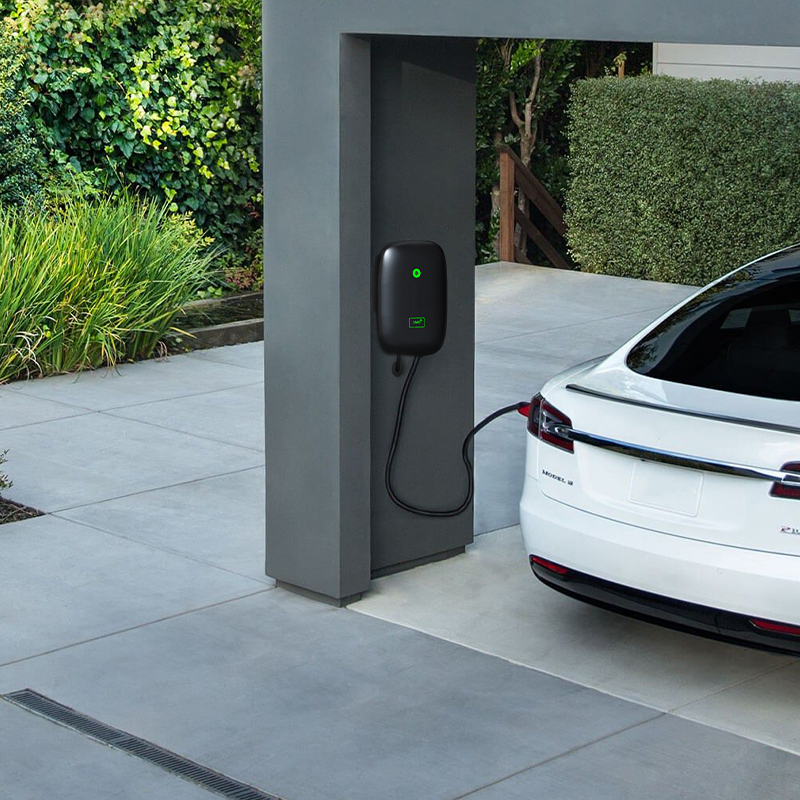
Can I save money after owning a home EV charger
Electricity costs less than fuel, after installing a home electric car charger, we can easily charge at home to save fuel costs.
